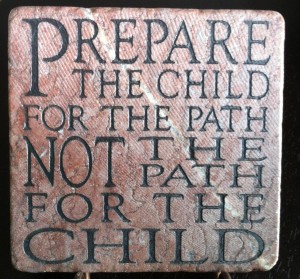 Do you like being angry? Is that what you really want?
Do you like being angry? Is that what you really want?
I know I don’t.
How about insecure? Frustrated? Jealous? Guilty?
At the risk of sounding cavalier about it, why don’t you just change that feeling?
Where do these emotions come from anyway? My view is that they are knower/judger reactions to something that doesn’t match up with our K/J understanding of how things should be.
I know I’m constantly judging what’s going on in my world against my “standards” (housed pretty indelibly in my K/J). And sometimes what I see or experience is way out of bounds from my expectations. In many cases I have a prepared response to these occurrences. I even recognize patterns in these emotional responses, whether anger, frustration, guilt, etc.
When someone cuts me off in traffic, I experience a sudden emotionally defensive posture. It’s immediate. That’s how I know I’ve given no real thought to it: It just came. I’m letting my brain dictate what I’m supposed to feel.
My boss (if I had one) calls me into his office and accuses me of some wrongdoing that is totally the responsibility of one of my peers. Watch anger, frustration, and fear all flow. And again, they flow pretty automatically, without much real input from me. It’s just my brain (K/J) doing what it does.
My friend and sometimes mentor Mary Lore wrote a book called Managing Thought. Her premise is that the brain is a tool to be used for acquiring what’s in our best interests. Not a computer that’s in charge of all our emotional reactions. In other words, she’d prefer we use our brains instead of letting them dictate what we do or feel in any situation.
Who’s in charge here anyway? Me? Or my brain (K/J)?
When I suggest to clients that they can simply change a feeling if they want to, I’m usually met with some level of righteous indignation: “You can’t just change your feelings!”.
Well, Mary and I think you can.
You might want to examine some of your negative feelings and reactions and ask how they actually serve you. Do they endear you to those around you? Could flipping the bird at the driver who just cut you off get you attacked (happened here in St. Louis recently). Could shrinking away in guilt cut you off from those who love and admire you?
See how your brain can just pull the trigger and put you at risk?
If that’s not what you want, I suggest a discussion between you and your brain on what you want to happen the next time a similar situation arises.
Two things are necessary here: First, you need to decide that the outward feeling (anger, frustration, etc.) is not adding anything to your life.
Second, you need to access the learner/researcher (L/R). Only from that lens can we see when we’re about to repeat the pattern and react the way we always do.
If we do that, we set up the L/R to watch our K/J before it crashes us into a brick wall again. At this point, we are in a position to make a choice. Let the crash ensue (K/J reaction plays out and we repeat the pattern), or decide to modify the K/J-generated feeling. At least when this happens, we are choosing how we react. Not deciding to avoid that feeling (whatever it is) in the first place gives us little or no incentive to attempt to access our L/R, so that decision must come first.
Predicting that our brain will run us into that brick wall puts us in a position to choose something different. I believe that we can’t see this happening when we remain in our K/J; choosing requires us to see things from a different perspective.
Victor Frankl said it best, which is why I quote it often: “Between stimulus and response there is a space. In that space is our power to choose our response. In our response lies our growth and our freedom.”


